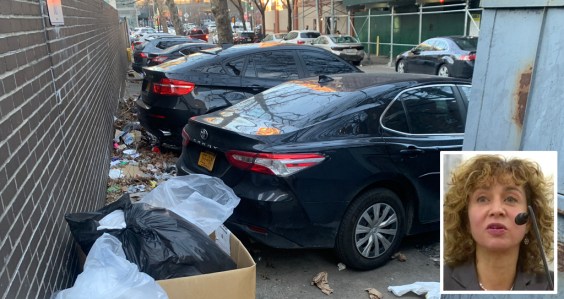This week, Nolan Gray talks about his new book, "Arbitrary Lines: How Zoning Broke the American City and How to Fix It." How were cities regulated before zoning — and should zoning abolition be the ultimate goal?
For those of you who prefer to read rather than listen, check out the edited highlights below the player. If you want a full, unedited transcript, be our guest by clicking here.
Jeff Wood: You dive really deeply into the history of zoning and note that it is a relatively recent invention that starts around 1916 and a decade later blows up with a Supreme Court case as all planners know: Euclid v. Ambler Realty. How are uses necessarily regulated before zoning codes were enacted?
Nolan Gray: So many cities would have rules for specific nuisance uses, right? So cities would say a certain type of industrial operations, such as a slaughterhouse or a tannery, would have to be physically separate from the city. So, unlike zoning, where we try to say, we’re going to identify where every single land use can and can’t go historically, the way we solved this problem was by saying, okay, we know there are a few truly offensive uses. We’re going to segregate those out. And we know that there are a few truly offensive behaviors; we’re going to regulate for those things.
That’s not to say that the pre-zoning land use planning was perfect. Of course there were things that fell through the gaps. But broadly that’s how they would deal with it: By addressing the individual use, as opposed to the way we do it today, where we try to say, not only are we going to identify where the things we don’t want to have to go, but we’re going to identify where the things that we theoretically do want are going to go.
Wood: You also talk about zoning is not, right? You talk about the market. It’s not the only type of regulation you can use. It’s not city planning. What’s the strangest confusion about zoning that you’ve seen?
Gray: I wanted to write that appendix on what zoning is not because when I give the top-line thesis of the book, which is essentially that we should abolish zoning and rethink what we want a land-use plan to do and how we’re going to do it. The first thing that I hear is things that have nothing to do with zoning. So for example, take the Minneapolis case where they abolished single-family zoning. You saw a lot of hysterical comments and even some news articles and major outlets saying, wow, Minneapolis is abolishing single-family zoning. You’re not gonna be able to build a single-family house in Minneapolis anymore. Right? It’s like, well, that’s just kind of a basic misunderstanding of what single-family zoning was, which it’s not really, it’s a prohibition on building apartments, right?
And if there wasn’t actually a demand for apartments or there wasn’t actually demand for additional housing or density, you wouldn’t get any bill because zoning is essentially stopping things. All zoning does is stopping things from happening, right? So the market, of course, is very important in determining what cities are going to look like in the current U.S. context. Or, for example, when I would raise the case of Houston, people would say, well, Houston got hit by a giant hurricane and that would not have happened if Houston engaged in use segregation and kept ... single-family homes. Of course, you need really robust environmental regulations. You need rules to stop people from paving over wetlands. You need active fiscal planning to direct growth away from environmentally sensitive areas. But whether or not Houston had zoning would have had no impact whatsoever on that.
I was just reading an article today on Katy, Texas, which is continuing to pave wetlands. And what do you know? Katie Texas has a very conventional zoning ordinance. There are other things that I think have issues, but I don’t really want to contend with in the book. Getting rid of zoning doesn’t really have much to do with historic preservation — doesn’t really have much to do with environmental review, certainly has nothing to do with building codes. This is another really common confusion, right?
So I’ll be making this case and someone will say, but, but surely we need to regulate the buildings that get built and make sure they’re safe. Absolutely. I don’t think anyone would argue with that. I try to drill down to what I think are the uncontroversial core pillars of zoning, and that’s systematic, city-wide use segregation and systematic citywide restrictions on density.
That is what zoning is. Right? And I think when you actually appreciate what zoning adds to the broader planning ecosystem, I would contend that it doesn’t really add any value and actually causes a lot of problems. And it makes all those other planning objectives much harder to achieve.





